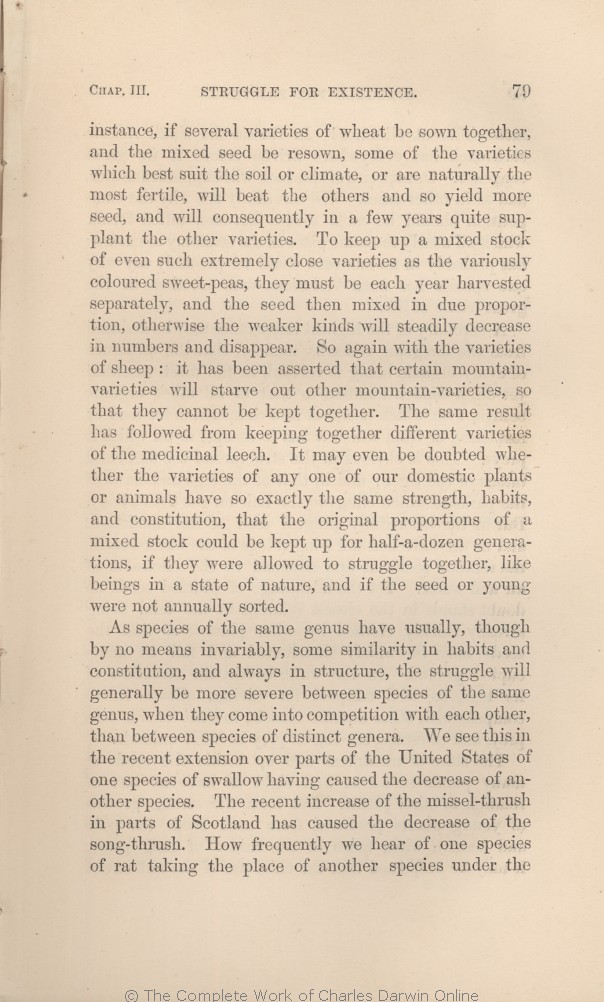instance, if several varieties of wheat be sown together, and the mixed seed be resown, some of the varieties which best suit the soil or climate, or are naturally the most fertile, will beat the others and so yield more seed, and will consequently in a few years
quite | quite 1859 1860 1861 1866 1869 | quite 1872 |
| variously coloured 1859 1860 1861 1866 1869 | | variously-coloured 1872 |
| proportion, 1860 1861 1866 1869 1872 | | propor- tion, 1859 |
| numbers 1859 1860 1861 | | number 1866 1869 1872 |
| sheep: 1859 1860 1861 1866 1869 | | sheep; 1872 |
| one 1859 1860 1861 1866 | one 1869 1872 |
| could 1859 1860 1861 1866 1869 |
| (crossing being prevented) could 1872 |
| half-a-dozen 1860 1861 1866 1869 1872 |
| half a dozen 1859 |
| like 1859 1860 1861 1866 1869 |
| in the same manner as 1872 |
| sorted. 1859 1860 1861 1866 1869 |
| preserved in due proportion. 1872 |
| Subtitle not present 1859 1860 1861 |
|
Struggle
for
Life
most
severe
between
Individuals
and
Varieties
of
the
same
Species.
1866 1869 1872 |
|
As
species | species 1859 1860 1861 1866 1869 | | the species 1872 |
| have usually, 1859 1860 1861 1866 1869 | | usually have, 1872 |
| some 1859 1860 1861 | | much 1866 1869 1872 |
| species of the same genus, when 1859 1860 1861 1866 1869 |
| them, if 1872 |
| species 1859 1860 1861 1866 1869 | | the species 1872 |
|









